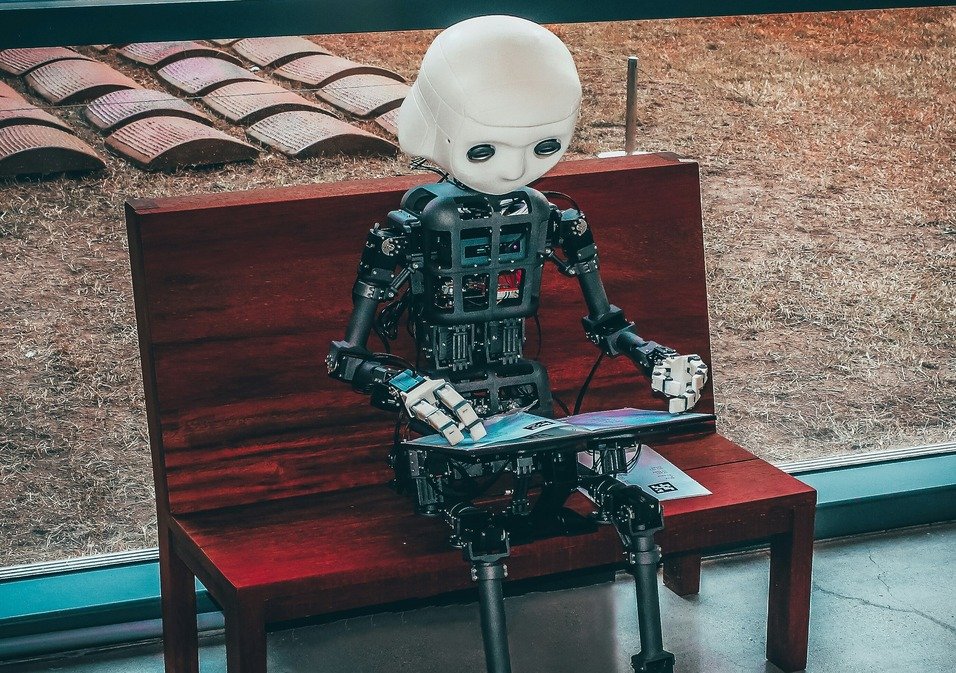Look at Modern Use in Self-Treatment
Artificial Intelligence (AI) is transforming every sector, and healthcare is no exception. From diagnosing illnesses to developing personalized treatment plans, AI is reshaping how we approach medicine and public health. Interestingly, AI isn’t just being used by professionals. The general public is increasingly turning to AI-based tools for self-medication and personal healthcare decisions. In this blog, we’ll explore how AI is changing medicine, its role in public health, and how people are using it for self-treatment.
What is AI in Medicine?
AI in medicine involves using algorithms and data-driven tools to assist with diagnosis, treatment recommendations, and even drug discovery. AI can analyze huge amount of medical data much faster than humans can, making it a valuable asset for doctors. But now, even regular people can use AI apps and tools to track their health, seek advice, and manage conditions.
How AI is Improving Medical Diagnosis
In recent years, AI has proven to be highly effective at diagnosing diseases earlier and more accurately than traditional methods. This is particularly valuable in areas like radiology, where AI tools can analyze images and detect abnormalities such as tumors.
Case Study: AI for Skin Cancer Detection (2020)
In a study published in Nature Medicine in 2020, researchers developed an AI model that could detect skin cancer with a 94% accuracy rate, better than most human dermatologists. The AI system, trained on over 100,000 images of skin lesions, could identify both common and rare forms of skin cancer. Early detection is crucial for successful treatment, and AI is helping make that a reality for more patients.
Case Study: AI in Detecting Diabetic Retinopathy (2019)
In 2019, a study by Google Health demonstrated the potential of AI in detecting diabetic retinopathy. This condition, a leading cause of blindness, can be identified by analyzing retinal images. The AI tool had an accuracy rate of 87%, proving to be a reliable assistant for ophthalmologists. This use of AI is making life-saving screenings more accessible, even in low-resource areas.
Personalized Medicine with AI
One of the most exciting developments in AI is its ability to create personalized treatment plans. Instead of a one-size-fits-all approach, AI can take into account a patient’s genetics, lifestyle, and environment to offer tailored treatment recommendations.
Case Study: AI and Precision Medicine in Cancer Treatment (2023)
A 2023 study published in The Lancet Oncology explored how AI was used to design personalized cancer treatment plans. The AI tool analyzed a patient’s genetic data and medical history to recommend the most effective treatments. This led to better patient outcomes and reduced side effects, as treatments were more targeted. Precision medicine powered by AI is expected to be the future of cancer treatment, offering hope for more patients.
AI in Drug Discovery
Drug discovery is traditionally a slow and costly process, but AI is speeding things up by identifying promising drug candidates faster than ever before.
Case Study: AI in Drug Discovery for Alzheimer’s (2024)
In 2024, a team of researchers used AI to discover a potential new treatment for Alzheimer’s disease. The AI system, developed by a company called Insilico Medicine, analyzed over 1,600 molecules and identified one that showed promise in treating Alzheimer’s. This discovery, which would have taken years using traditional methods, took just a few months. AI’s role in drug discovery is cutting down the time and cost needed to develop life-saving medications.
AI in Public Health: Monitoring and Prevention
AI has a significant role to play in public health, especially when it comes to monitoring diseases and predicting outbreaks. By analyzing data from a variety of sources, AI systems can offer real-time insights into public health trends.
Case Study: AI Predicting Flu Outbreaks (2019)
In a 2024 study by Johns Hopkins University, AI was used to predict flu outbreaks by analyzing data from social media, weather reports, and healthcare databases. The AI tool was able to accurately forecast outbreaks up to two weeks in advance. This allowed public health officials to prepare for increased hospital visits and allocate resources more effectively.
The General Public’s Use of AI for Self-Treatment
Perhaps one of the most interesting trends is how the AI is being used by the general public for self-medication and personal health monitoring. AI-powered apps and wearables are now making it easier for people to manage their own health, reducing the need for frequent doctor visits.
Case Study: AI-Powered Health Apps (2020-2023)
Several AI-powered health apps have gained popularity in recent years, especially during the pandemic. Apps like Ada, Babylon Health, and WebMD’s AI-powered symptom checkers allow users to input their symptoms and receive a diagnosis or health advice. These tools are designed to help users decide if they need to see a doctor or if their symptoms can be managed at home.
A study published in Digital Health in 2021 found that 60% of people using these apps were able to manage their conditions without needing to visit a doctor. However, the study also highlighted the risks of over-reliance on AI for self-diagnosis, as some users received incorrect advice due to limited information input.
AI and Mental Health
Mental health is another area where AI is proving to be beneficial. Many people are turning to AI-powered mental health apps and chatbots for support, especially in places where mental health services are scarce or expensive.
Case Study: Wysa – AI in Mental Health
Wysa is an AI-powered mental health chatbot that provides users with techniques for managing anxiety, stress, and depression. A study published in JMIR mHealth and uHealth found that 70% of users reported a reduction in their symptoms after using Wysa for just one month. The app uses cognitive behavioral therapy (CBT) techniques and is accessible 24/7, making it a popular choice for those looking for mental health support.
AI in Wearable Health Technology
Wearable devices like smartwatches have integrated AI to help people monitor their heart rate, sleep patterns, and physical activity. These devices are empowering individuals to take charge of their health and make more informed lifestyle choices.
Case Study: AI in Smartwatches for Heart Health (2022)
In 2022, a study by Stanford University looked at how AI-powered smartwatches, like the Apple Watch and Fitbit, could detect irregular heart rhythms. The AI algorithms in these watches were able to detect atrial fibrillation, a common cause of stroke, with an accuracy rate of 80%. The study concluded that wearable devices could serve as an early warning system for heart problems, helping people get medical help before a serious event occurs.
Ethical Concerns and Challenges of AI in Healthcare
While AI is offering incredible advancements in healthcare, it also raises important ethical concerns.
- Privacy Issues: AI systems require access to massive amounts of personal health data, raising concerns about data privacy. Who has access to this data, and how secure is it?
- Misuse by the Public: While AI apps can be useful, there is also a risk of misuse. People might use AI apps for self-medication without consulting a doctor, leading to potential health risks if they rely on inaccurate or incomplete diagnoses.
- Bias in AI Algorithms: These systems are only as good as the data they are trained on. If the data is biased, the Artificial Intelligence can make inaccurate predictions or diagnoses. For example, an AI trained primarily on data from Western countries may not be as accurate in diagnosing patients from other regions, such as South Asia or Africa.
The Future of AI in Public Health
AI is playing larger role in medicine and public health in the coming years. As the technology becomes more advanced, it will offer even greater accuracy in diagnosis, personalized treatment options, and real-time health monitoring. Governments and healthcare organizations are investing heavily in AI research, and we can expect to see more AI-powered tools becoming part of everyday healthcare.
Case Study: AI in Healthcare Policy (2021)
In 2021, a study published in Health Affairs discussed how the UK’s National Health Service (NHS) used AI to streamline patient care and reduce wait times. By using AI to predict which patients were at risk of complications, the NHS was able to allocate resources more efficiently, leading to improved patient outcomes and lower costs.
Conclusion: AI and the Future of Self-Treatment
AI is rapidly transforming healthcare and public health, offering new opportunities for disease diagnosis, treatment, and prevention. Rather having clear benefits, there are also risks involved, more people are turning to AI for self-treatment. For now, it’s best to view AI as a tool that complements, rather than replaces, professional medical advice.
As AI continues to evolve, we can expect it to play an even bigger role in helping people manage their own health and make more informed decisions. Whether through personalized medicine, wearable devices, or AI-powered apps, the future of healthcare looks smarter, more efficient, and more accessible for everyone.
Read more: Best shows on Netflix right now


Magnificent goods from you, man. I have be aware your stuff previous to and you’re just extremely fantastic. I really like what you’ve obtained here, certainly like what you’re stating and the way in which in which you assert it. You’re making it entertaining and you continue to care for to stay it wise. I can’t wait to read far more from you. That is really a tremendous web site.
Thankyou so much.